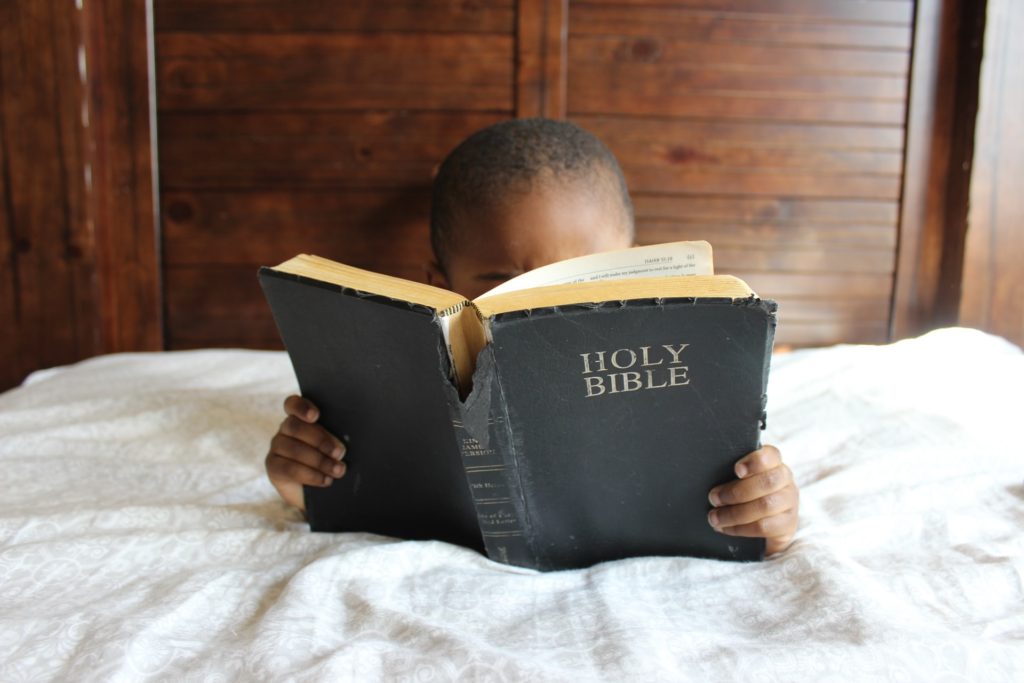This article contains situations and ideas that may be sensitive for some.
There are an estimated ten thousand distinct religions worldwide and about 84% of the world is affiliated with Christianity, Islam, Judaism, Hinduism, Buddhism, or one of the smaller religions. However, many of those who are part of that 84% could have been forced into that religion by parents, friends, or other influences in their lives as children.
Some people only know the joyful side of religion, of practising with family and believing in a higher power, and that brings happiness and hope to their lives. On the other hand, some people only know the dark side of belief, where the rules and laws get out of hand, where they’ve been forced to be someone they’re not.
This is exactly why religion shouldn’t be forced on children, since it can result in religious trauma, and ignorance in regards to other cultures and religions. Plus, from personal experience, forcing religion on someone can reduce their will to practice, simply because they’re being told they have to.
Religious trauma
Religious trauma is not something that most people are educated on. Some may have never even heard the term. Religious Trauma Syndrome (RTS) is described as a group of symptoms that arise in response to traumatic or stressful religious experiences, as well as other symptoms of PTSD such as nightmares, flashbacks, dissociation, and emotional difficulty.
So what can cause religious trauma? Spiritual abuse is a big influence. Spiritual abuse can be roughly described as control, manipulation, and being degraded by a religious leader. It may sound far fetched, but a common example is the way members of the LGBT+ community are treated. Lots of people, from teens to adults, are told that being gay is a sin and that they are going to hell. This can be considered religious abuse. People who are an active member of their local church can come out as gay and find that they are shunned from their church, as well as their family sometimes.
This can be damaging since a church is considered a second home and could be a safe place for some.
Another example is sexual abuse. Marie Keenan wrote a book engaging in the first-person narratives of a group of Roman Catholic clergy in depth and detail, offering a thorough analysis of the perpetrators’ accounts of how and why they sexually abused minors. The book states: “The majority of accused priests in the United States (55.7%) had one formal allegation of abuse made against them, 26.4% had two or three allegations, 17.8% had four to nine allegations, and 3.5% had ten or more allegations.”
Sexual abuse is a difficult topic for any survivor to talk about, especially when they are manipulated in to thinking that it is alright simply because it’s a part of their religion.
Ignorance
Furthermore, people who are forced into religion and preached to their entire lives can be very ignorant in regards to other religions due to lack of education. For example someone who is preached to by the Catholic church their entire life may be ignorant about, and therefore discriminatory towards, other people who practice different religions.
Since churches and schools tend to only teach the history and beliefs of their own religion, the only resource at the believers’ disposal is the internet, but chances are they will not do the research on their own. Many religions have a strict set of rules, as well as sins. Certain passages can be misinterpreted, such as passages from the Bible (Christian), the Quran (Muslim), or the Tanakh (Jewish).
“You can’t eat that, because I am on a diet”
There is a term for such ignorance, and it is called religious intolerance, where people of a certain religion refuse to tolerate practises from a different religion. There is a certain analogy I like to use: if you were eating a piece of cake and someone says “You can’t eat that, because I am on a diet”, would that really make sense?
Going on a diet is a personal choice, just as religion is. Religion is a set of beliefs that people choose to follow, since there is no evidence that it is true. Therefore those who practice a certain religion should not discriminate against those who do not follow the same rules or have the same beliefs.
Forcing Religion
Forcing religion may seem like a good idea to some parents. In a way, forcing religion can be seen as a helpful tool to kids, since they think their child will eventually find their faith and believe in what the parents do.
However this is not the case. You cannot force someone to believe in something. Sure, they might tell you exactly what you want to hear, but what good does that do? A child will always believe what they want to believe, no matter how much those beliefs are forced.
In fact, some kids are less likely to be interested in religion and practising, if they are forced into it. Some people would rather discover religion on their own, by doing research and exploring different values, practises, and cultures.
Based on my personal experience, my parents never forced me into religion. However, I have attended a Catholic school my whole life, which naturally includes a religion class. The school taught us the same things every year; passages from the Bible, and the values we should have.
I always thought it was the most boring thing, which eventually led to pushing my religion away.
Thinking back now, I would’ve much rather done my own research and had the opportunity to explore different religions, because now that I do, it interests me very much. However, because of school, I don’t think I am interested in practising. Yes, I am baptised, I’ve done my First Communion, and my Confirmation (those are the steps to commit yourself to being a Christian), but I now consider myself an Atheist.
All I’m trying to say is to think long and hard before forcing your kids into religion. You may think it’s a good idea now, but it might cause more harm than good. Let your kids discover their own faith and beliefs, because they might end up being more in tune with their spirituality.
Image credit: Samantha Sophia

